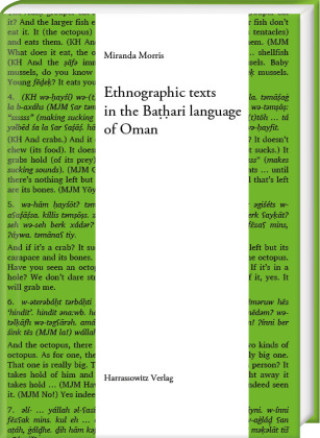
Code: 45246445
Ethnographic texts in the Ba hari language of Oman
by Miranda Morris
Ba hari, called B ahr t by its speakers, is one of the six unwritten Semitic languages of southern Arabia. It is no longer a living language, and today only a handful of older people still speak it. The B ahira were the indigeno ... more
- Language:
 English
English - Binding: Hardback
- Number of pages: 792
Publisher: Harrassowitz, 2024
- More about this

154.27 €
RRP: 154.31 €
You save 0.04 €
Availability:
50/50 We think title might be available. Upon your order we will do our best to get it within 6 weeks.
We think title might be available. Upon your order we will do our best to get it within 6 weeks.We search the world
You might also like
-
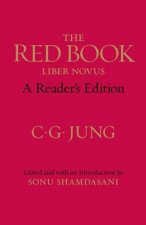
The Red Book – A Reader`s Edition
38.63 € -14 % -
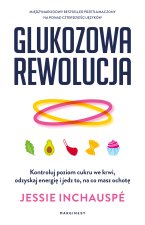
Glukozowa rewolucja. Kontroluj poziom cukru we krwi, odzyskaj energię i jedz to, na co masz ochotę
10.66 € -12 % -

Principles of Helicopter Flight
35.21 € -4 %
Give this book as a present today
- Order book and choose Gift Order.
- We will send you book gift voucher at once. You can give it out to anyone.
- Book will be send to donee, nothing more to care about.
Availability alert
Enter your e-mail address and once book will be available,
we will send you a message. It's that simple.
More about Ethnographic texts in the Ba hari language of Oman
You get 388 loyalty points
 Book synopsis
Book synopsis
Ba hari, called B ahr t by its speakers, is one of the six unwritten Semitic languages of southern Arabia. It is no longer a living language, and today only a handful of older people still speak it. The B ahira were the indigenous inhabitants of the drier areas of Dhofar. Displaced by more powerful incomers, they ended up in this infertile strip of shoreline. Their own migration history recalls a time when their number was greater, but today they are a small tribe, settled in the new towns of Sharbithat and Ashwaymiyah on the coast, or in Zakhr in the desert plateau above. In this book some 400 texts from this remote and marginalised community are presented in B ahr t transcription and English translation, documented through field recordings or by oral transmission directly to the author. The purpose of the recordings, spanning the period from 1976 to 2016, was to study their way of life prior to 1970 and the accession of Sultan Qaboos, when so much changed. The author asked about specific skills, encouraged speakers to reminisce about their past and to recall stories they used to tell. Those who generously shared their memories were all elderly, the product of an earlier oral culture. Formerly, their survival depended on harvesting the sea. Before the dugout canoe, they fished by swimming out to sea on inflated goatskins. The small numbers of goats they raised were therefore as important for their skins as for their meat and milk. The community was largely self-sufficient; they had a wealth of specialist knowledge about the sea and the fauna and flora of their area. It was this expertise that enabled them to extract sustenance from such a harsh and unforgiving environment.
 Book details
Book details
Book category Books in English Language
154.27 €
- Full title: Ethnographic texts in the Ba hari language of Oman
- Author: Miranda Morris
- Language:
 English
English - Binding: Hardback
- Number of pages: 792
- EAN: 9783447120845
- ID: 45246445
- Publisher: Harrassowitz
- Dimensions: 240 × 170 mm
- Date of publishing: 13. March 2024
Trending among others
-

Sorry Not Sorry
23.34 € -2 % -

Lern- und Übungsgrammatik Deutsch als Fremdsprache
18.10 € -9 % -

Auf jeden Fall!, 6 Teile
13.27 € -

Kira-Kira
7.44 € -27 % -

Prüfungstraining
17.70 € -

Office 2021 All-in-One For Dummies
28.17 € -35 % -
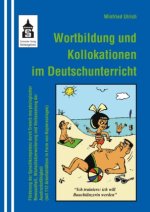
Wortbildung und Kollokationen im Deutschunterricht
20.52 € -5 % -
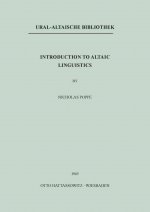
Introduction to Altaic Linguistics
41.55 € -
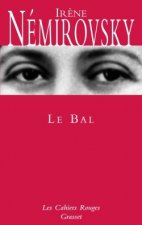
Le bal
10.86 € -

Compact Wales: Place Names in the Brecon Beacons National Park
9.55 € -5 % -
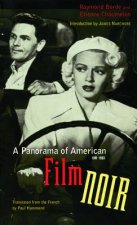
Panorama of American Film Noir (1941-1953)
20.62 € -17 % -
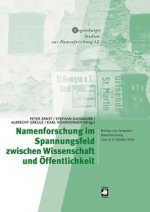
Namenforschung im Spannungsfeld zwischen Wissenschaft und Öffentlichkeit
51.82 € -

Access For Dummies
26.56 € -21 % -
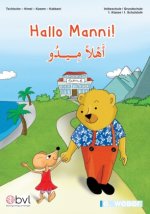
Hallo Manni! Hallo Medo! Arbeitsbuch für den Erstsprachenunterricht Arabisch in der 1. Klasse Volksschule zur mehrsprachigen Alphabetisierung
16.29 € -
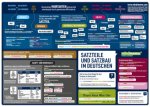
mindmemo Lernposter - Der deutsche Satzbau - Deutsch Grammatik lernen für Kinder und Erwachsene
10.36 € -9 % -
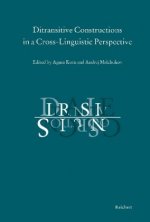
Ditransitive constructions in a cross-linguistic perspective
173.89 € -

DENGLISCH gesagt ... (Wandkalender 2024 DIN A3 quer), CALVENDO Monatskalender
32.29 € -5 % -
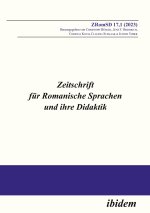
Zeitschrift für Romanische Sprachen und ihre Didaktik
34.21 € -4 % -

Einfach gut! International, 6 Teile
17.10 € -

Einfach gut! International, 6 Teile
13.27 € -
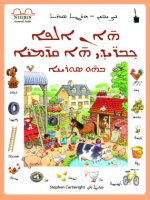
An alfo xabray i a qamoye bu suryoyo
18.21 € -14 % -

Einfach gut! International, 6 Teile
13.27 € -

Auf jeden Fall!
15.19 € -

Dracula Contra Manah
17.50 € -9 % -
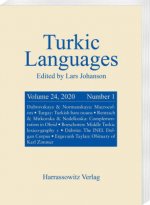
Turkic Languages. Vol.24
62.18 € -

mindmemo Lernfolder - Die deutschen Zeiten - Deutsche Grammatik Lernhilfe
7.54 € -10 % -

Antonio Buero Vallejo
74.96 € -

mindmemo Lernposter 3er Set - Deutsche ZEITEN + WORTARTEN + SATZBAU lernen Grammatik verständlich erklärt Grundwissen Lernhilfe Zusammenfassung 3x Ler
22.43 € -10 % -
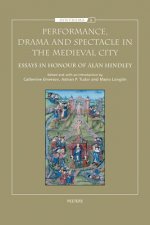
Performance, Drama and Spectacle in the Medieval City
114.21 € -

Saq 100: 3 Anglophone Literatur
18.21 € -

Estrangement Revisited, Part II: Part I
19.31 € -
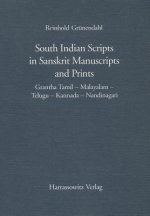
South Indian Scripts in Sanskrit Manuscripts and Prints
65.10 € -
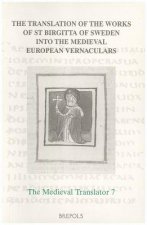
Trans Work St Biritta Sweden
75.57 € -

Invisible Effects
119.14 € -
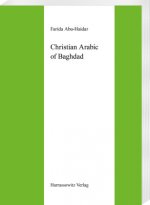
Christian Arabic of Baghdad
51.82 € -

Phraseologie im digitalen Zeitalter - Neue Fragestellungen, Methoden und Analysen
16.29 € -

Denken, Sprache und die Übersetzungsfrage bei Descartes
14.88 € -5 % -

Unter dem Felsenreich von Haunold und Dreischuster
20.82 € -4 % -
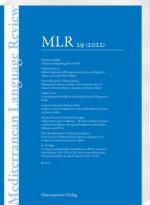
Mediterranean Language Review 29 (2022)
147.02 € -

Nur ein Depp würde dieses Buch nicht kaufen
19.92 € -9 % -
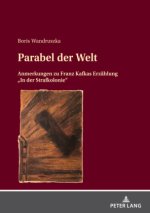
Parabel der Welt
79.69 € -

Word Order Matters
70.13 € -
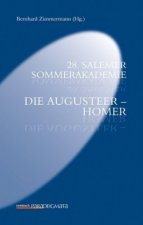
28. Salemer Sommerakademie
38.43 € -5 % -

Afro-Hispanic Linguistic Remnants in Mexico : The Case of the Costa Chica Region
23.44 € -9 % -

Die Entwicklung syntaktischer Strukturen
74.36 € -4 % -
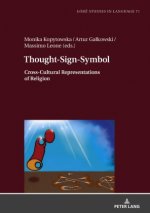
Thought-Sign-Symbol
70.03 € -

Die abgewandte Seite der Worte
14.78 € -4 % -
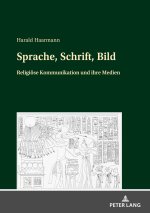
Sprache, Schrift, Bild; Religioese Kommunikation und ihre Medien
83.32 € -

Studies in Polish Language and Literature
56.95 €
Collection points Bratislava a 2642 dalších
Copyright ©2008-24 najlacnejsie-knihy.sk All rights reservedPrivacyCookies


 15549 collection points
15549 collection points Delivery 2.99 €
Delivery 2.99 € 02/210 210 99 (8-15.30h)
02/210 210 99 (8-15.30h)